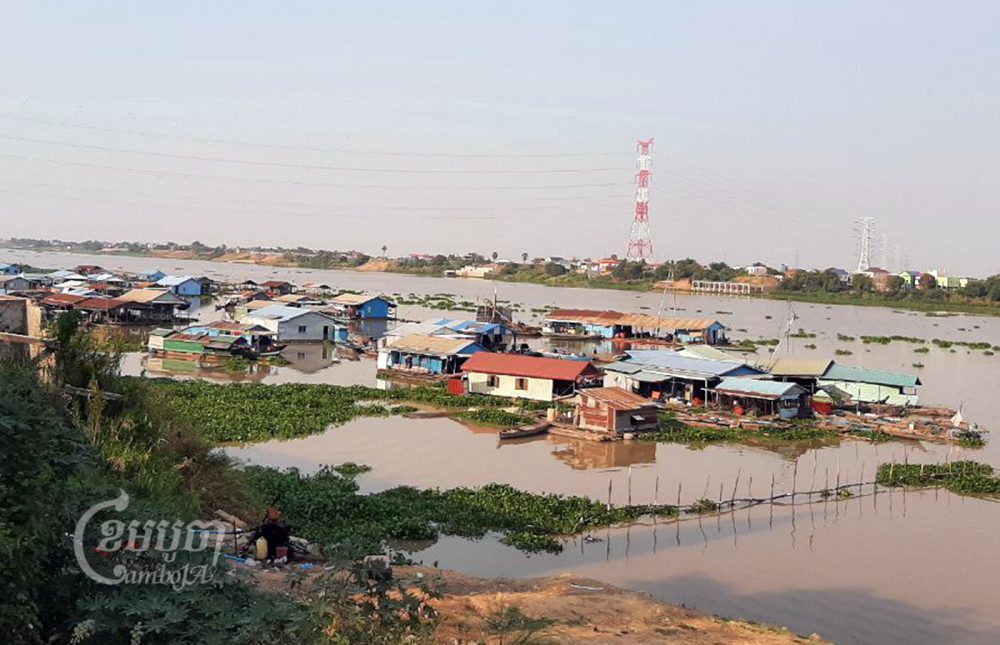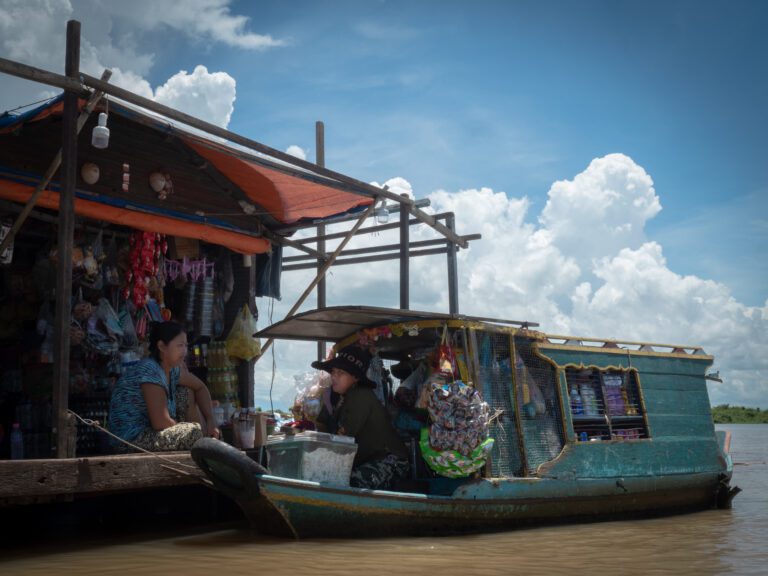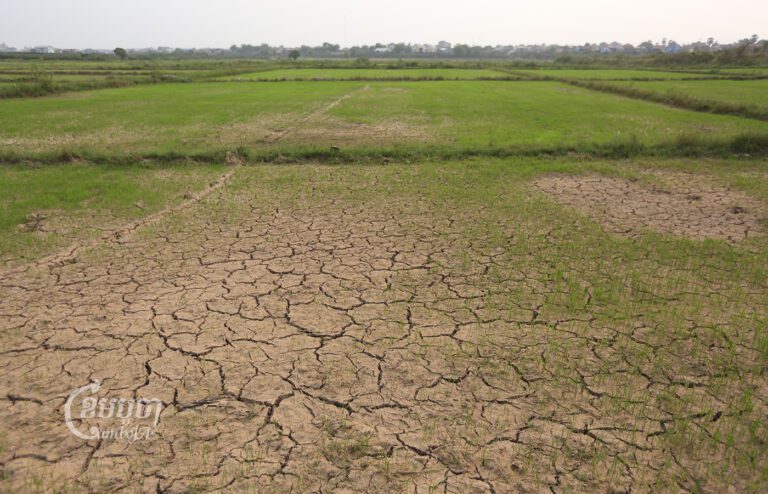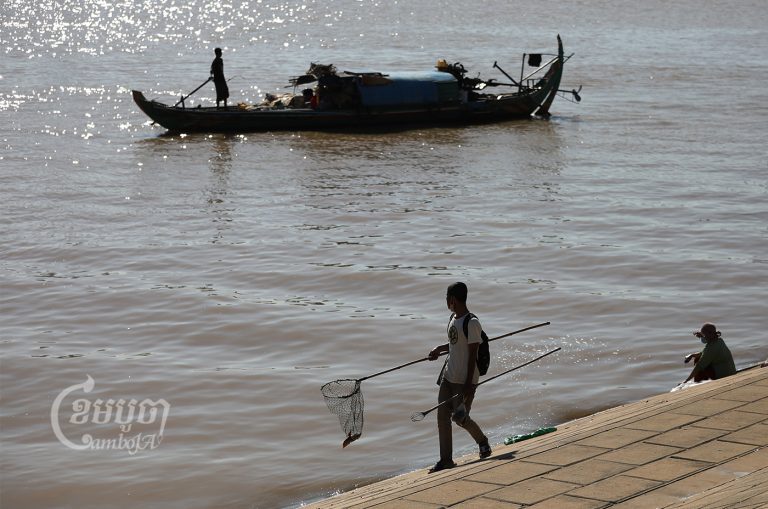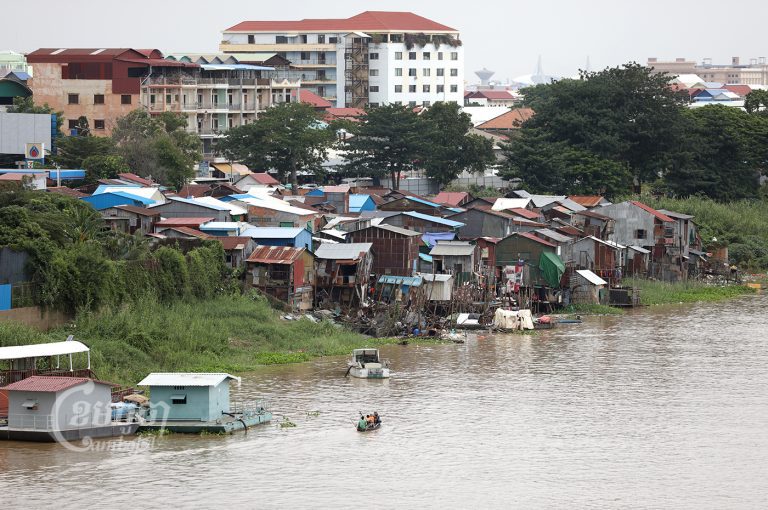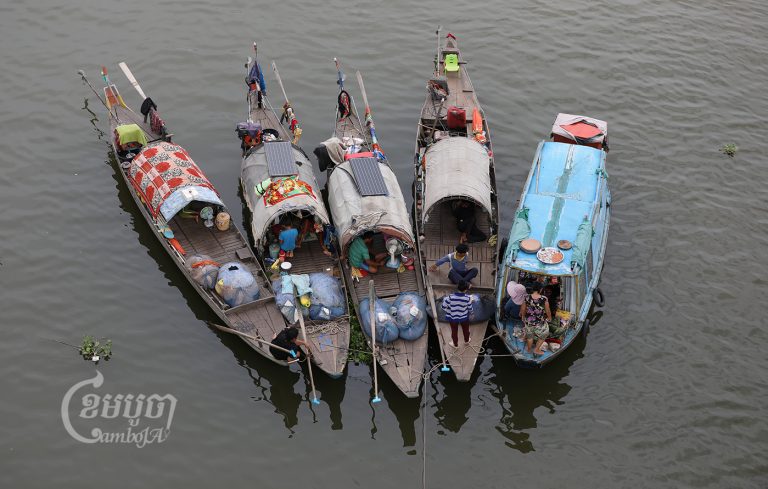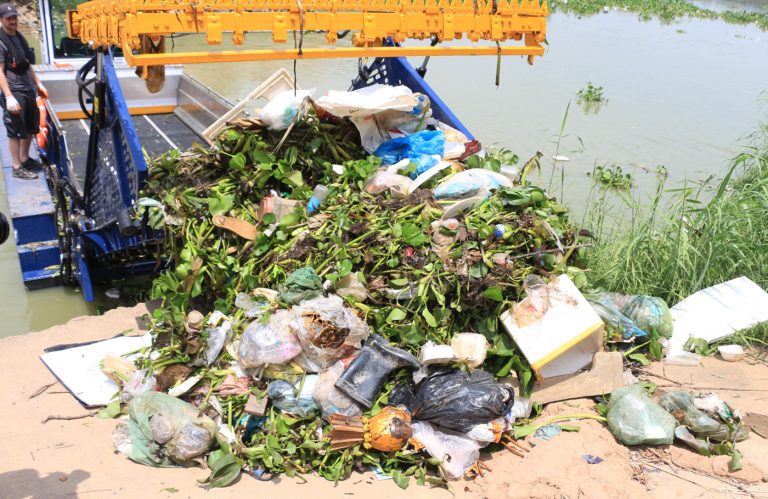Starting in June 2021, hundreds of ethnic Vietnamese families living in floating villages on the Tonle Sap river have been evicted from Phnom Penh and told to relocate upstream and downstream — a move that families say has caused difficulties for their livelihood.
Speaking at a press conference earlier this month, Keut Chhe, Deputy Governor of Phnom Penh, said there are now nearly 200 floating houses in Prek Pnov district, at the border between Phnom Penh and Kandal province
“We requested those 200 floating houses to stop their fish farm and told them to find [new] jobs and it will take us several years to complete this work,” Chhe said. He said that the families, who primarily rely on fishing and fish farming to earn a living, will be given three years to find an alternative vocation, claiming that their activities polluted the water.
“If we give them [just] one year, they cannot change their career. Even many of us who have studied for 24 years, still don’t have a good career. Therefore, we give them another three years to change their career.”
On June 2, 2021, the Phnom Penh Capital Administration issued a notice requiring people living on floating houses, fish farms and unregulated structures along the river in Chbar Ampov and Russei Keo districts leave within a week. A week later they extended the deadline to June 12, but said those who do not relocate, would be forcibly moved by authorities who couldn’t be held responsible for any damage.
According to the president of the Vietnamese Association in Cambodia, Sim Chi, about 1,000 Vietnamese families in total were evicted from Phnom Penh in June 2021. Apart from those who moved upriver to the Kandal border and downriver near Vietnam, more than 400 families left their floating houses and moved into rental homes to stay in Phnom Penh.
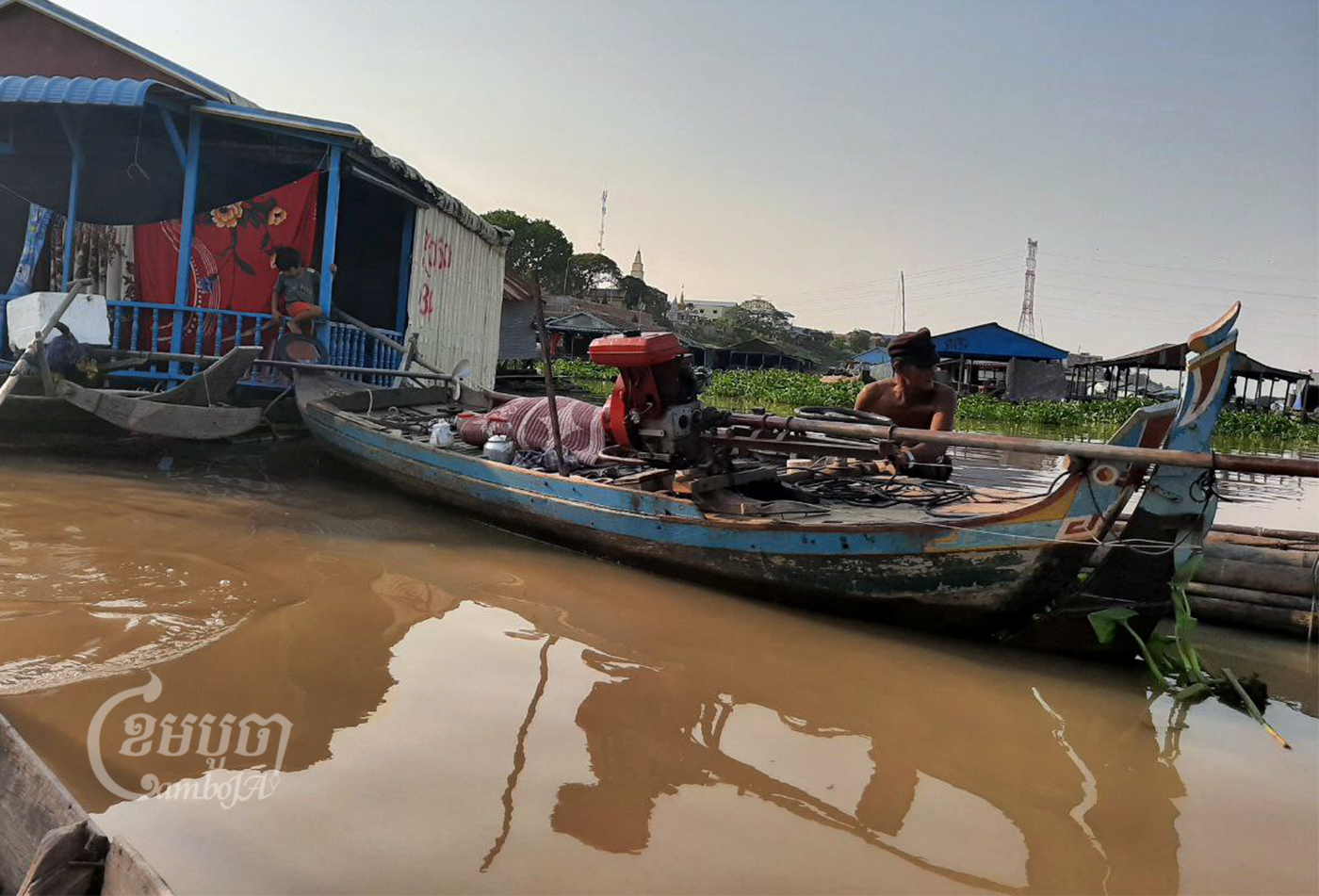
Yang Phoan, an official of the Vietnamese Association in Cambodia, said that many in the community have residency permits that allow them to live in Cambodia, but have no right to buy land or homes — which is why they must live on floating homes.
Like many of Cambodia’s ethnic Vietnamese population, those in this floating community lack Cambodian citizenship despite having been born and raised in Cambodia. But they are similarly not recognized to be Vietnamese citizens, leaving them stateless and with few legal rights.
“They are not considered as Vietnamese citizens because they have been living in Cambodia for several generations,” said Phoan.
Experts say the weakened water flow in the Tonle Sap river due to hydropower and climate change and high rates of waste runoff has seriously damaged the river’s biodiversity, and water quality, while also impacting the health of people who rely on the river for drinking water and bathing.
To Thi Va, a representative of about 100 Vietnamese families living on the Tonle Sap near the border of Kandal, said that most of the families who have moved there have no options apart from fishing — something that has become exceedingly difficult as the fish catch continues to drop.
“It’s very difficult to find fish, really hard,” she said. “Now I don’t know what to do. [After three years] when it is time to leave, we will think about it.”
More than 100 ethnic Vietnamese families from Kampong Chhnang, Pursat, Kandal and Phnom Penh, moved their homes to the Vietnamese border in Ka’am Samnor commune, according to Loeuk Dek District Governor Chap Chanvithyea.
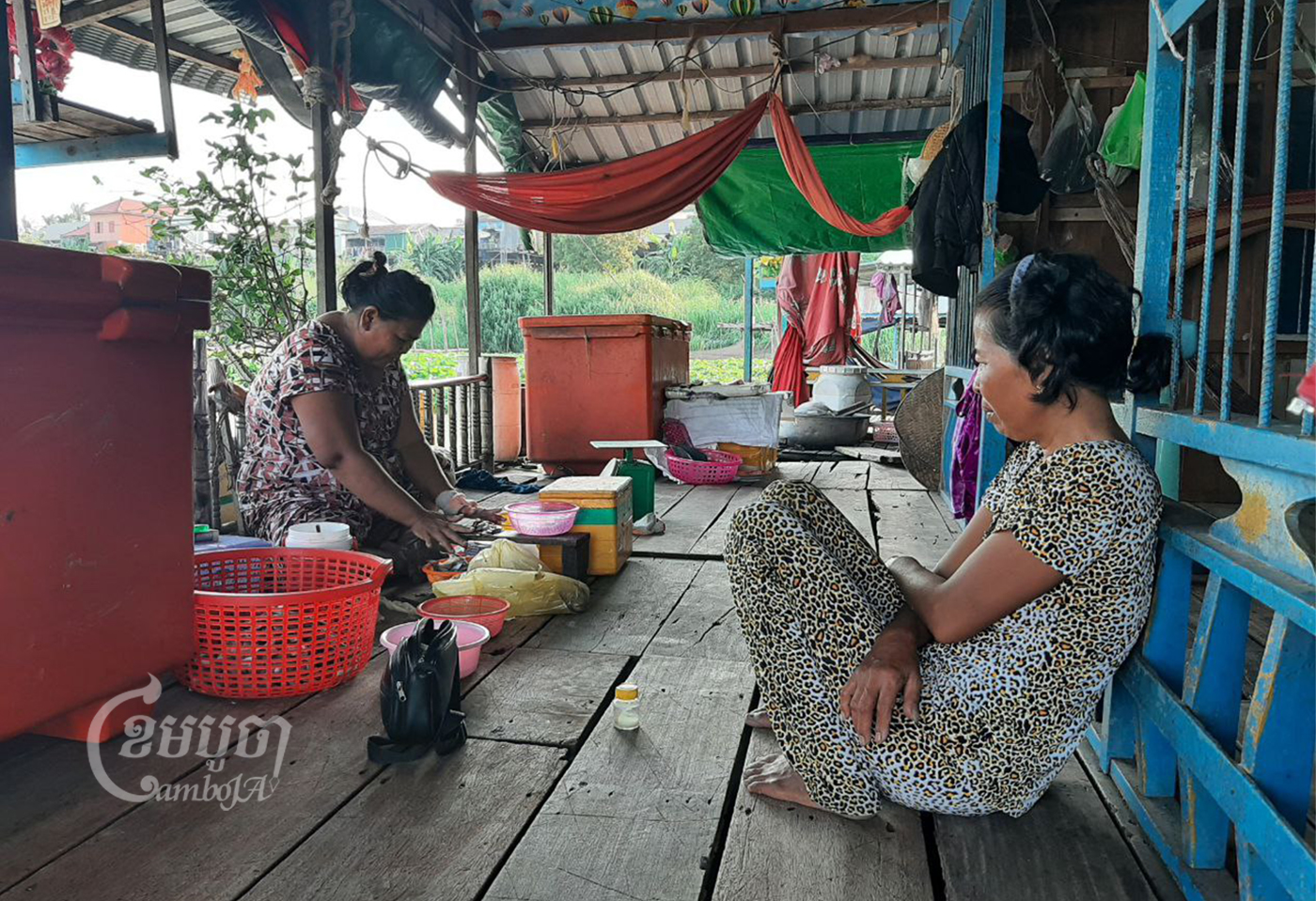
Sitting on a palm boat next to the river, surrounded by water hyacinth, Sok Chamroeun, a 38-year-old ethnic Vietnamese fish farmer, said he had recently begun pursuing a new business as a wholesale coffee seller after moving to Prek Pnov district.
Chamroeun said that he decided to stop raising fish due to the high cost, particularly after he had to move his fish farm repeatedly to avoid runoff from a nearby brewery.
“It is very difficult. It caused more than 3 tons of my fish to die because of the sewage,” he said. “The waste is at the bottom of the river, when the first rains come, it starts to pop up and it makes the whole river smell.”
Yor Voeng Vin, an ethnic Vietnamese fisherman who lives in a floating house in Ka’am Samnor commune, said he decided to stop raising fish because he did not have the money to buy fish feed.
“I have rice to eat only because [Vietnamese] people give me rice to eat every day because they feel sorry for us.”
While the authorities say they want community members to stop raising fish, Voeng Vin said they have made it difficult for them to pursue other opportunities. He said intended to sell his fish farm and use the money for other business ventures, but the authorities would not allow him to tow it to the land.
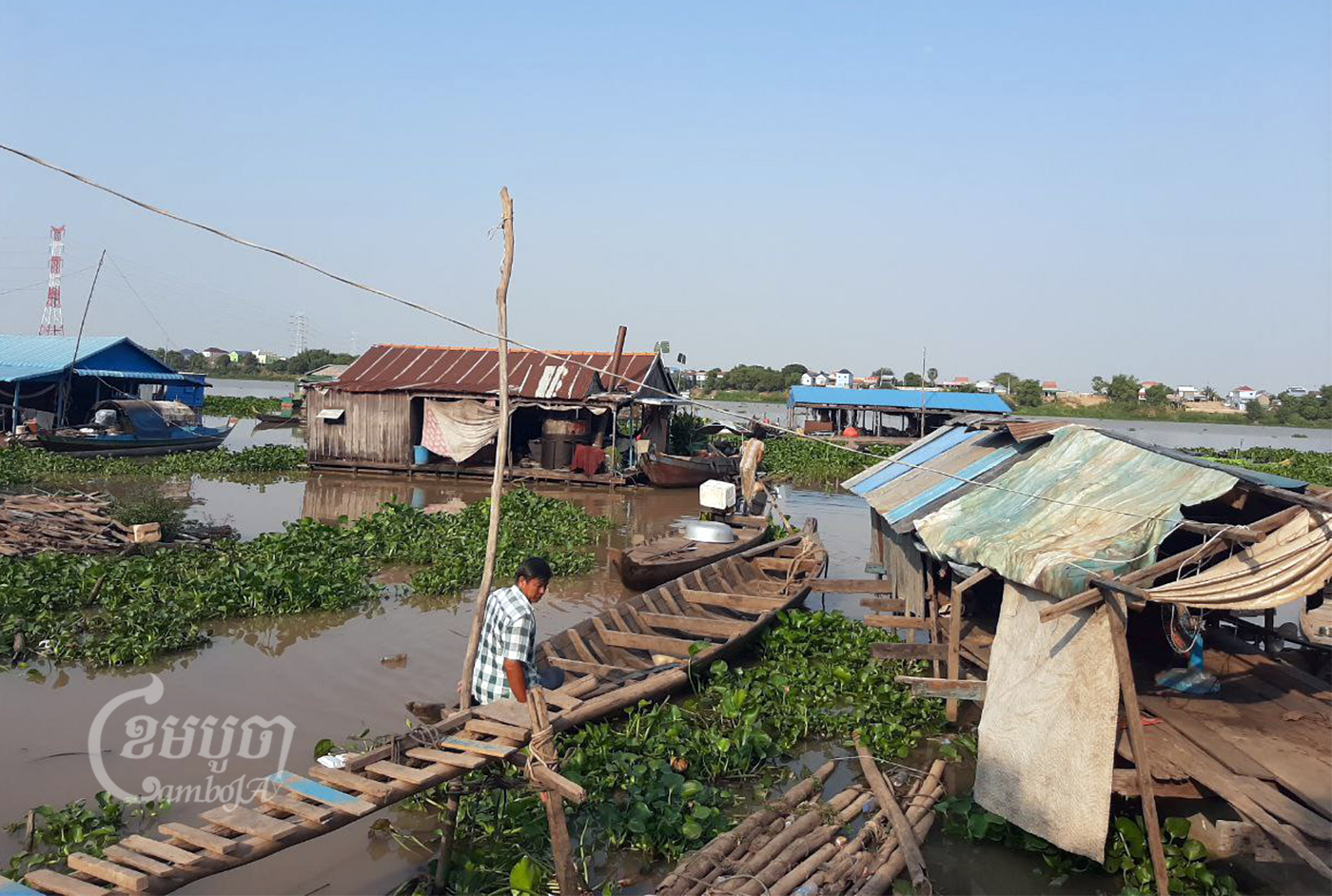
Eang Sokun, Ka’am Samnor commune chief, said the new arrivals face a shortage of food for their fish.
“How can they raise more fish as now they don’t have enough fish feed. They are new here. How can they find fish feed?” Asked if there was a solution he said: “It is their responsibility. I don’t know because it is their business not the authorities’.”
Chap Vanny, director of the Kandal Provincial Information Department, insisted that the floating fish farmers faced few serious difficulties.
“Their problems don’t seem to be too big for us. The district governor visits and distributes gifts to them very often. They can live and feed themselves. They are able to catch fish, and do other jobs.”
Kruy Malen, director of the Kandal provincial administration, said the authorities are considering the possibility of moving community members from water to land.
“Leouk Dek district is not a location like Phnom Penh, where they can stay for a long time, so the provincial authorities do not have a limit of one year or two years, the sooner the better. Because it is not a good location for people, they should just stay there temporarily.”


